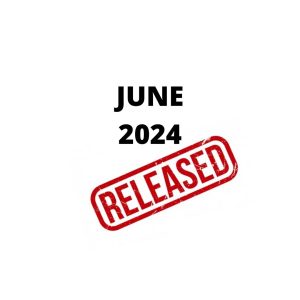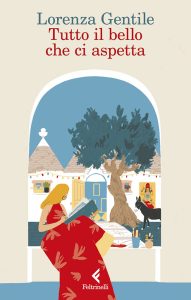Interview with Vicki Satlow
July 6, 2023

5 July 2023
Interview with Vicki Satlow (Vicki Satlow Literary agency)
Author:
Katherine Gregor, Literary Translator from Italian into English
Vicki Satlow is a Milan-based literary agent, the owner of the Vicki Satlow Literay agency (https://vickisatlow.com/)
Vicki, please tell us about your background and education. How, when and why did you settle in Italy and in Milan in particular?
As the daughter of an editor at the MIT Press, books and publishing were as familiar to me as the infamous Boston chill. After four years at Barnard College (Columbia University), fortified by a year studying Dante in Florence and a stint at a scouting Agency in New York City, I found my mentor, Oriana Fallaci, who taught me a great deal about writing. She also encouraged me to move to Italy and helped me find an internship in Milan, where I ultimately met my husband and settled.
How would you describe your agency’s ethos?
I like to think that the agency’s ethos is an ethic: a single-minded search for intellectual and creative authenticity. I am drawn to works that explore profound, life-changing ideas and expression, and reflect the world not only as it is but above all as it could be and should be. My own search is driven by what Viktor Frankl coined “Man’s search for meaning”.
Do you think being originally a non-Italian and bilingual gives you a different perspective on selling international translation rights?
I do think that from a cultural point of view, as an American in Europe, I have a unique viewpoint and a capacity to see the extraordinary in what others might see as mundane. I recently reread notes I had taken while living in Florence, in which I recognize how some of the things I once perceived as novelties – ie Vespa-riding women in fur coats – no longer seem that way after years of living here. That is the advantage of the fresh outlook that only an outsider can offer. Isn’t that why we travel? To return home with a new outlook.
How is being a literary agent in Italy different from the U.S.?
As far as I am told, agents in the U.S. do much more editing, although I am quite demanding of my authors from that point of view. Otherwise, I think every agent has a unique approach.
What do you look for in a book you would pitch to an foreign (and in particular Anglophone) publisher?
That would very much depend on the publisher I am speaking to. Every publisher has a unique outlook and interest. However, there are books that are relatively “easier” to sell and other genres or stories that are more “difficult” (which are, of course, the ones I am particularly drawn to). I would say that any book you can’t put down, is a book that deserves to be published.
What do you look for in a writer you represent?
First, I look at the work itself and then I look at the writer as a person. And from that keyhole I look for kindness, ambition, respect, and a professional approach to their writing. It is a career and an industry. I expect writers to understand that and be part of the collaborative community.
In your experience, do Anglophone publishers look for something different in a book than in other countries?
The English language market is dominated by chains, rather than independent book stores and the success of a book (and a publisher) is getting into those chains. That means that quirky books are going to be more difficult to sell. As an agent, I understand the challenges that publishers face in getting their books into the bookstores.
What would you reply to a foreign publisher who tells you that obtaining financial support from Italy is harder than from some other countries?
That’s Italy. Be patient and understand the process. We are a people-based industry, so I would say it is important to try to understand the powers at work behind the scenes.
What is the most challenging thing about selling an Italian book abroad?
Everything. We are competing with not only English language authors but authors from every other language in the world, and the hardest hurdle to get over is getting an editor to actually consider the book, read the synopsis and the sample chapter and then of course, have it valuated by a trusty reader or translator. I understand that it is not easy to evaluate a book you cannot read, which is why I invest in providing a full (or almost) translation for evaluation. It is a pricey investment that almost always pays off in the end.




